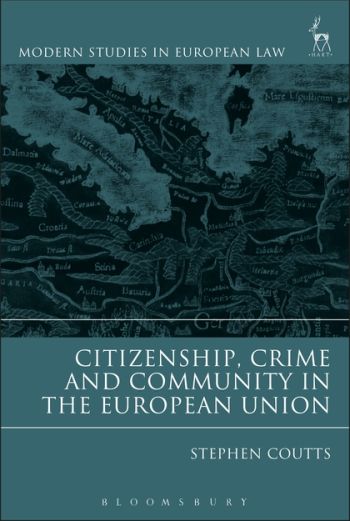
Discussions on Union citizenship tend to focus on two areas: firstly, that of the rights of free movement and non-discrimination of migrant citizens, especially in relation to welfare benefits; secondly on the political dimension of Union citizenship and its role in the European Union’s governance and constitution.
This book offers an innovative approach to the study of Union citizenship. It does look at the rights of Union citizenship and the place of citizenship in the European constitution and the European integration process but does this through an analysis of its interaction with another, highly relevant, area of law, that of criminal law. In doing so it contributes to and enriches our understanding of Union citizenship by drawing out heretofore neglected aspects and implications.